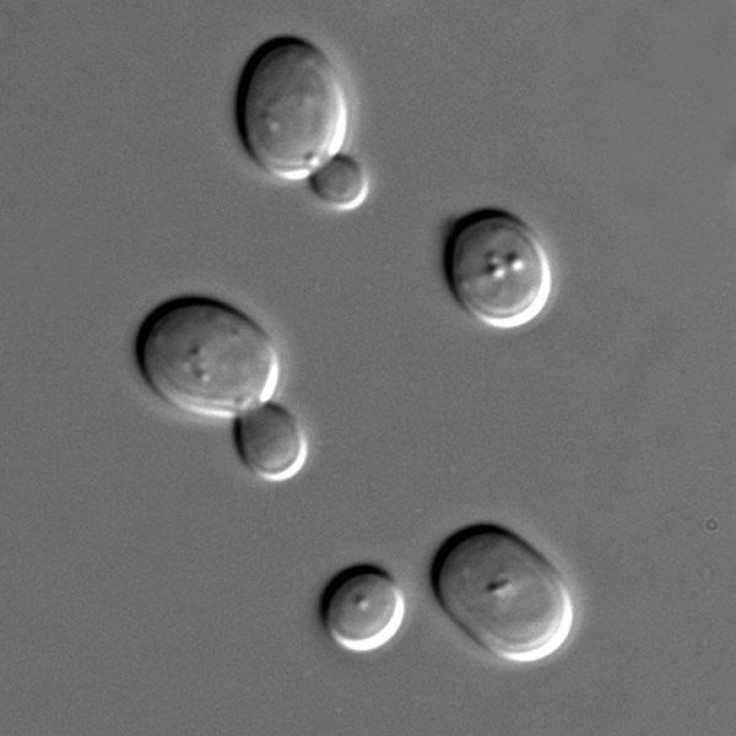Newly Engineered Synthetic Yeast May Lead to Evolution on Demand

The newly created yeast that includes synthetic DNA marks the first achievement in complex-celled organisms, and could potentially allow scientists to take control of genome in larger scale, leading to the manufacture of entirely synthetic organisms.
A team of Johns Hopkins researchers has generated yeast cells with semi-synthetic chromosomes from scratch, and the engineered yeast strains were proven to be as healthy as natural yeast.
According to a report of their work published in Sept. 14 issue of journal Nature, the researchers built two chromosome segments representing around 1% of the 12-million-base pair genome of the yeast Saccharomyces cerevisiae, incorporating several types of changes into the segments.
A series of systematic changes were made to the DNA sequences through a software program, subtly changing the code and removing some of the repetitive and less used regions of DNA between genes. A mutated version 2.0 of a yeast cell's original 9R chromosome was thus engineered.
Individual bases of DNA were strung together and assembled into longer segments, eventually resulting in large segments of 10,000 base pairs put into live yeast cells. The engineered yeast was swapped for the native counterpart in the chromosome.
Scientists also created smaller piece of the chromosome 6L along with 9R.
The yeast cells containing partially synthetic chromosomes were grown in different conditions and were given different nutrients. The cells surprisingly adopted the new genetic codes and their ability to grow was strikingly similar to their natural counterparts.
The Hopkins team developed an inducible evolution system called
SCRaMbLE, short for Synthetic Chromosome Rearrangement and Modification by Lox-P mediated Evolution,
to enable us to pull a mutation trigger - essentially causing the synthetic chromosome to rearrange itself and introducing changes similar to what might happen during evolution, but without the long wait, explains
Jef D. Boeke, Ph.D., Sc.D., professor of molecular biology and genetics, and director of the High Throughput Biology Center at the Johns Hopkins University School of Medicine.
The scrambling system was built in order to change multiple things at once, says Boeke.
If you think of the yeast genome as a deck of cards, we now have a system by which we can shuffle it and/or remove different combinations of 5000 of those cards to get lots of different decks from the same starter deck, Boeke added. While one derivative deck might yield good hands for poker, another might be better suited for pinochle. By shuffling the DNA according to our specifications, we hope to be able to custom design organisms that perhaps will grow better in adverse environments, or maybe make one percent more ethanol than native yeast.
The 9R and 6L experiments are the beginning of a big project, whose ultimate goal is to synthesize the whole yeast genome (about 6000 genes) and SCRaMbLE the 5000 likely to be individually dispensable, said Boeke.
The generic sequences built into the synthetic chromosomes could dramatically rearrange the organism's genes when triggered by a chemical, allowing scientists to accelerate the evolution of the organisms on demand.
We have created a research tool that not only lets us learn more about yeast biology and genome biology, but also holds out the possibility of someday designing genomes for specific purposes, like making new vaccines or medications, says Jef D Boeke of the University School of Medicine.
The synthetic yeast genome could be used to answer many questions about fundamental properties of chromosomes, genome organization, gene content, function of RNA splicing, the extent to which small RNAs play a role in yeast biology, the distinction between prokaryotes and eukaryotes, and questions relating to genome structure and evolution, according to the research team.
The new study is a big step for manufacturing entirely synthetic organisms that will help scientists create bio fuels, vaccines and industrial chemicals.
© Copyright IBTimes 2024. All rights reserved.











